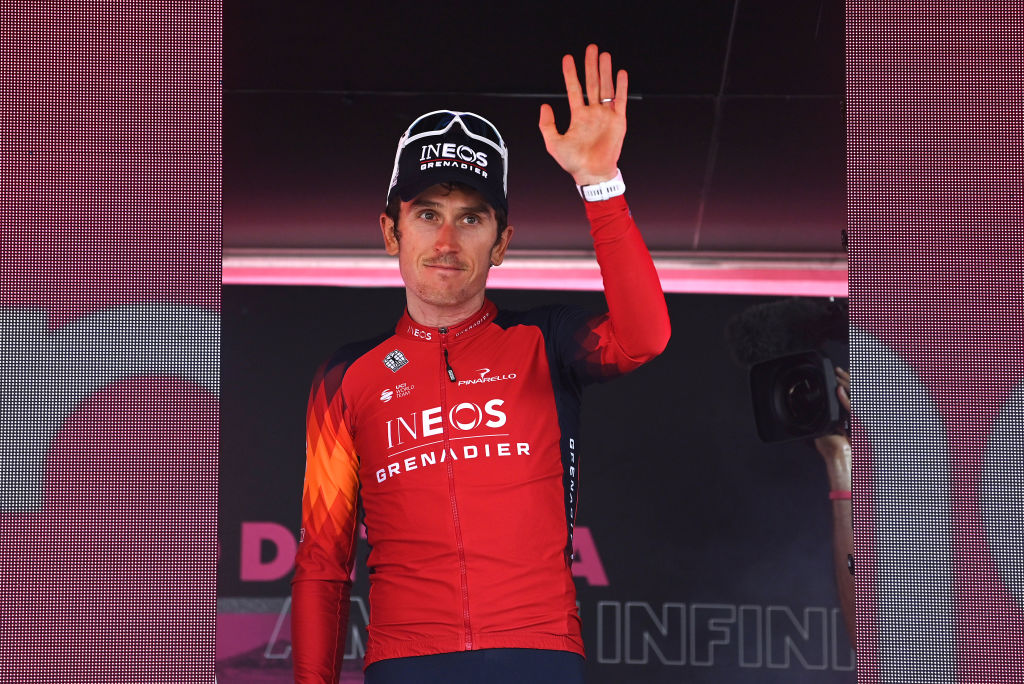
For Geraint Thomas, the cycling off-season grind is no new thing. The Welshman is currently preparing for a new season in the pro peloton for the 18th time in his long career, perhaps for the penultimate time having recently signed a two-year contract extension with Ineos Grenadiers.
For Thomas, the brief time off the bike around this time of the year is a time to let go and indulge in the things he nor any other cyclist can partake in during the racing season – such as alcohol and off-diet food.
The 37-year-old told The Times that he needs that kind of "blowout" during the off-season, a period of regular life, before returning to the strict lifestyle of a professional athlete.
"The last two weeks, honestly, I think I've been drunk 12 out of the 14 nights. Since coming back to Cardiff, it's been mad. That's the way you meet your mates. Like, 'Oh, do you want to catch up? Yeah, let's go for dinner, or just go down the pub'," he said.
"I don't drink during the season, apart from the odd drink, but in the off-season you let yourself go. For sure, the tolerance is lower at the start, but I feel like I have a good drinking condition now. I don't know if it's a British, or an Aussie mentality, the culture of just going out and getting drunk when you're young."
"That sticks with you and that's the way I socialise. That blowout – that real normality – is what I need, because now I'm like, 'Mate, I really need to just get on my bike and get structured.'"
Thomas compared his mentality and his off-season 'blowouts' to what he sees from younger riders nowadays, saying that many newer pros are "on it" year-round rather than indulging as he does.
"I feel like I've been able to enjoy my time. It's rare now that a young rider actually has a drink," he said. "Not that you've got to have a drink to have a good time. It just shows the difference in the mentality – everything is measured, and they're all on it 12 months of the year. Even in the off-season they still ride their bikes or they're running marathons."
Soon enough, though, attention will turn back to the bike, to getting back into shape and down to race weight, and to his future goals.
Thomas admitted that "the Giro is quite tempting" after his penultimate stage maglia rosa loss to Primož Roglič this past May. However, he also said "I missed it this year" of the Tour de France, the Grand Tour he won five years ago.
"On the top of [Monte Lussari], I wanted to be anywhere else in the world. It was pretty shitty," he said of the Giro. "It was good there was a race the next day, though. Helping Mark Cavendish at the end was a nice way to finish. Seeing him win was nice and that put a bit of shine on what was quite a hard day."
"I'd worn that jersey for so long, and then standing on the podium and seeing Roglič in it, happy, celebrating with his son, it was just, oh... so close, you know, what could have been."
Whether he returns to Italy, with its 68km of time-trialling and mountain-packed final week, or France, to face off against Roglič, Tadej Pogačar, Jonas Vingegaard, and Remco Evenepoel, he's now planning for the 2024 season.
Getting from the 75kg he weighs after five weeks away from training and racing down to approximately 68.5kg is one challenge – "It's the final kilo and a half which is the hard bit," he said – while another is maintaining the weight at a constant level, for which he draws a contrast with boxers, who cut weight for one-off fights, rather than three-week races.
"It's not like you can just do it over a couple of weeks and, bam, it's gone. That makes it harder," he said. "If it was like [boxer] Ricky Hatton, nail it and then it's off… it's the fact that you've got to keep it. Even in the race you're watching what you're eating. It's a mental fatigue."
"It's just the toll of it. It's taxing, 24/7, you know? Training is easy because I enjoy riding my bike, I enjoy pushing myself and doing efforts and it's only for a certain amount of time in the day. Whereas this is just constant."
There's also the change in nutrition on the bike which has been an adaptation to make. The increase in carbohydrate intake has been a major revelation in recent years, with riders taking on more and more than ever before, certainly a lot more than when Thomas entered the peloton in 2007.
But he said that his ability to adapt to the new norm has helped him keep up with the top of the sport even as he enters his late 30s.
"Having a bit of a crazy diet back then definitely affected your mood, but that's a big change," he said. "We still have a few low-carb rides, but now I tend to fuel the rides a lot more. Then I'm not as hungry off the bike, so I eat less. When you're riding, that's when your metabolism's working and you're just burning [weight]. That's the new thinking; it has been working."
"It's the last two years that it's really changed. In most races, we are eating 80 to 120 grams [of carbohydrates] an hour. The mindset is the biggest challenge. Having that old-school approach for so long, you're now eating quite a lot and to get your head around it was a challenge."
"Being able to adapt and move on with innovations, that's allowed me to stay competitive."







